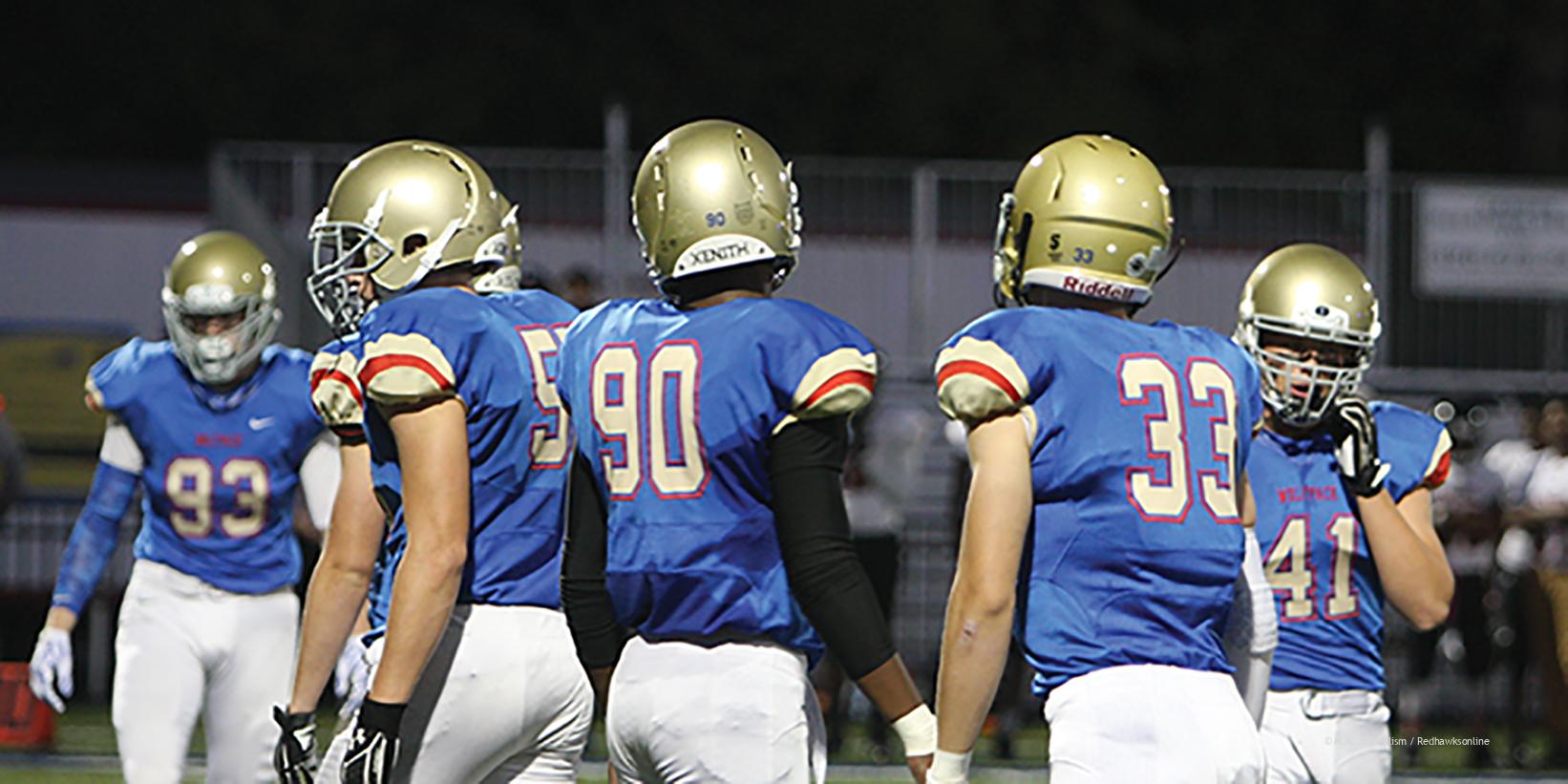BY KENNY KIRATLI AND ALICIA SAPORITO
Next year, the SMB Wolfpack football team will play a more challenging regular season schedule. The team is a co-op consisting of five teams: St. Paul Academy, Minnehaha Academy, the Blake School, Hope Academy and Mounds Park Academy. The change comes after another year of regular season domination, highlighted by an 8-0 finish with many lopsided victories-the Wolfpack, only in its second season, out-scored their opponents by a total of 293 points.
However, for the second straight year, SMB fell to Mahtomedi in the Section 4AAAAA tournament, this year in the finals. In order to seek more competition on a weekly basis, the team approved a district realignment.
What is a district?
Two years ago, the Minnesota State High School League (MSHSL), the state’s governing body for high school sports, made sweeping changes for football. The MSHSL got rid of conferences and replaced them with districts, which grouped schools in close proximity to one another. There are 15 total districts, each containing between 12 (Big Southeast district) and 28 (South Central district) teams. The Wolfpack, along with 25 other teams, are in the Twin City district.
However, due to differences in competition, the state’s 15 districts are further broken down into subdistricts. The Twin Cities district is divided into four subdistricts: Gold, Maroon, Red and Black. The Wolfpack will be moving from the Gold subdistrict to the Maroon subdistrict.
Why did the Wolfpack make the switch?
It wasn’t necessarily the Wolfpack who made the switch. Every two years, the MSHSL requires each district to reevaluate its subdistrict alignment. Within each district, the rearrangement process is done by a panel of Athletic Directors.
“The districts are always looking to keep a competitive balance,” said Wolfpack head coach Collin Quinn. “We are as well. We were a part of the [realignment] conversation, and we approve and heartily support it.”
It’s not uncommon for a section or district to be realigned. “It’s not really that big of a deal,” said Quinn.
How does scheduling work?
For playoffs, to make competition as fair as possible, the state divides high school teams into six classes. Class placement is determined by total enrollment of the school(s) involved with a team.
Classes are designed for postseason scheduling (the section and state tournaments are played between teams of the same class) but often indicate the level of play a team might expect in the regular season.
The Wolfpack, with a combined enrollment of five schools, are in class AAAAA. In a typical regular season schedule, a team plays all of the teams in its subdistrict, then fills the remainder of its games with opponents from its larger district. The Gold district had consisted of many smaller schools with lower enrollment, meaning blowout after blowout for the AAAAA Wolfpack in the regular season.
What will the new Wolfpack schedule look like?
The Wolfpack will now play in the Maroon subdistrict with Washburn, Fridley, St. Paul Central (Class AAAAA), Highland Park (AAAA) and St. Croix Lutheran (AAA). This year in the Gold subdistrict, the Wolfpack didn’t play a single AAAAA opponent.
Their subdistrict schedule consisted of Providence, New Life, St. Paul Johnson, St. Paul Harding and Minneapolis South, all of whom are AAAA teams except for Providence, who is AAA. However, many smaller schools are just as competitive as their larger counterparts.
“It’s really not what it seems like,” said Quinn. “Some [class AAA] schools like St. Croix Lutheran will probably be as tough as any team on our schedule.”
So the 2017 schedule looks like this: the Wolfpack will play all Maroon district teams, accounting for five out of their eight regular season games. According to head coach Collin Quinn, the team has scheduled games with New Life Academy and St. Paul Johnson, both Gold district opponents.
What do the players think?
Now facing a more challenging regular season schedule, the Wolfpack looks to gear up for postseason competition. “It will be better for us to play tougher teams,” said sophomore linebacker Bennett Theisen.
In many lopsided games this year, Wolfpack starters sat out large portions of the game while their backups took to the field.
“I didn’t like not playing a full game,” said starting running back sophomore Siegel Howard III. Next year, however, Howard III will likely see more snaps and won’t have to worry about early exit. Minnehaha Athletic Director Josh Thurow agrees that a tougher schedule will be beneficial for the Wolfpack.
“It will be better for them to be tested,” Thurow said.

